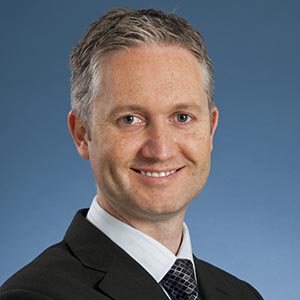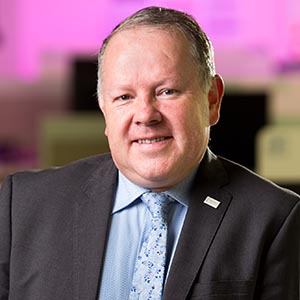Exciting new Rapid Applied Research Translation projects
Several research groups in the Department of Medicine and Radiology have been awarded highly competitive grant funding as part of the Medical Research Future Fund Rapid Applied Research Translation (MRFF RART) scheme, with a total funding allocation greater than $800,000. The funded research investigates a diverse range of conditions including stroke, indigenous cardiovascular health, type 2 diabetes and osteoporosis demonstrating the breadth of research and translation occurring in the Department.
Project: Tenecteplase versus Alteplase for Stroke Thrombolysis Evaluation Trial in the Ambulance (TASTEa)
Lead Investigator: Dr Andrew Bivard
Department node: Medicine, Royal Melbourne Hospital

Dr Bivard’s research group investigates alternative therapies for stroke, focussing on more effective and accessible drug therapies and novel treatment approaches including the use of a mobile stroke unit (MSU), which is the first such unit designed as an ambulance that allows assessment and treatment of stroke patients in the pre-hospital setting. Dr Bivard’s MRFF-funded project involves a clinical trial of a new thrombolytic unit, tenecteplase, in the MSU. Tenecteplase has been shown to be more effective at improving stroke survivor’s recovery and opening blocked blood vessels than the more commonly-used alteplase in the hospital setting. This study aims to investigate if earlier administration of tenecteplase is more effective than early administration of alteplase in stroke treatment. From a healthcare delivery and cost perspective, tenecteplase is cheaper, easier to administer and more practical for ambulance-delivered therapy. Should it result in better clinical outcomes, there are likely to be significant potential for improved patient outcomes and cost benefits.
Project: Closing the gap on Indigenous cardiovascular (CV) health: Improving community outcomes through high impact policy relevant research.
Lead Investigator: Associate Professor Luke Burchill
Department node: Medicine, Royal Melbourne Hospital

Associate Professor Burchill’s research focuses on cardiovascular health in the indigenous setting. His MRFF-funded project is a collaboration between indigenous health researchers and clinicians with data scientists, biostatisticians and health economists which aims to investigate several factors and observed trends in CV disease in the indigenous Australian cohort. The project aims to explore several distinct themes and areas in CV disease and care in the cohort, including CV disease risk, differences in CV disease and care between indigenous and non-indigenous Australians and the impact of evidence-based CV care on health outcomes and economic savings. The research findings will be translated through collaboration with public health and primary care groups to devise strategies for improved implementation of evidence-based CV care for indigenous Australians, with potential for application on a federal scale as a national indigenous CV implementation science initiative.
Project: Liberal glUcose Control in critically Ill patient with pre-existing type 2 Diabetes (LUCID): a phase IIB multi-centre parallel group randomised clinical trial
Lead Investigator: Associate Professor Adam Deane
Department node: Medicine, Royal Melbourne Hospital

Associate Professor Deane’s research investigates treatments and care in the intensive care unit (ICU) setting. This project explores the potential of a novel treatment for hyperglycaemia (high blood glucose) as observed in patients with type 2 diabetes, who comprise more than 30,000 ICU admissions annually. Current treatment can lead to hypoglycaemia (low blood glucose) which is harmful, so alternative treatments are being sought. The project involves an innovative multicentre randomised clinical trial focussing on blood glucose treatment only at a higher level in diabetes patients. The trial aims to confirm if the incidence of hypoglycaemia and other complications is reduced through such treatment, thus demonstrating improved patient outcomes and transforming the management of blood glucose in type 2 diabetes patients in the ICU.
Project: Integrating Osteoporosis in Primary Care: The Osteoporosis Risk and Management (ORMA) Project
Lead Investigator: Professor Gustavo Duque
Department node: Medicine, Western Health

Professor Duque’s research interests span musculoskeletal health and associated conditions including osteoporosis and osteosarcopenia. It is estimated that by 2022, over 6.2 million Australians of 50 years of age or older will have one of these conditions, a rise of 31% since 2012. Despite this observed trend, currently less than 20% of patients presenting with mild trauma fractures are investigated or treated for osteoporosis. This project aims to develop protocols to allow general practitioners (GPs) to identify patients at risk of osteoporotic fractures more effectively and earlier, utilising novel e-technology that supports detection and management of osteoporosis and risk factors, GP osteoporosis education and support for GPs to develop management plans for risk factor detection and disease. The e-technology is based on successful similar programs implemented by Professor Duque and his colleagues for the identification and treatment of chronic disease and is informed by osteoporosis management guidelines developed by the Royal Australasian College of GPs (RACGP). The likely increased effectiveness of risk factor and disease identification and management will lead to greatly improved patient outcomes and more efficient clinical practice and care in the treatment of a major health problem in the ageing Australian population.